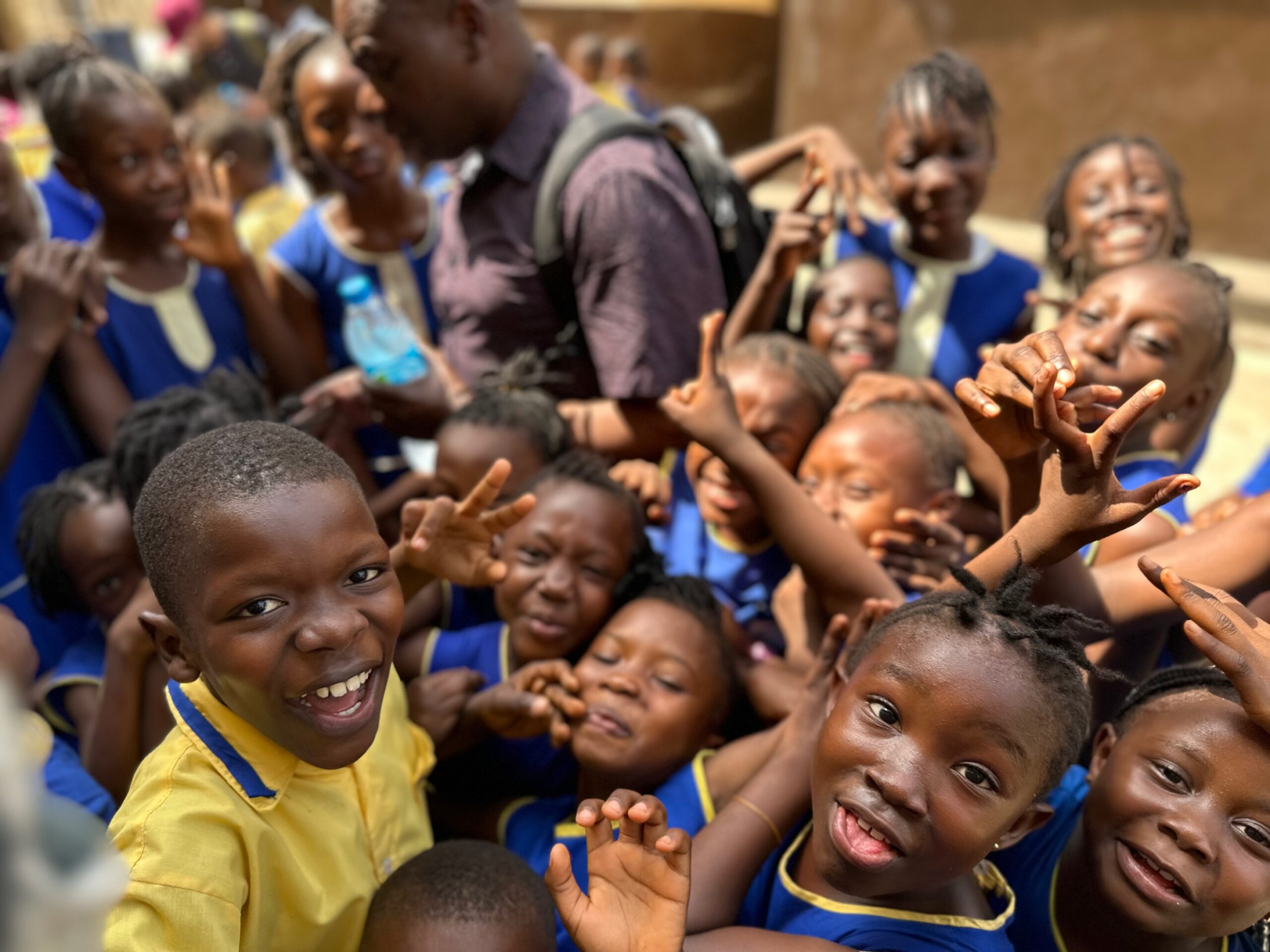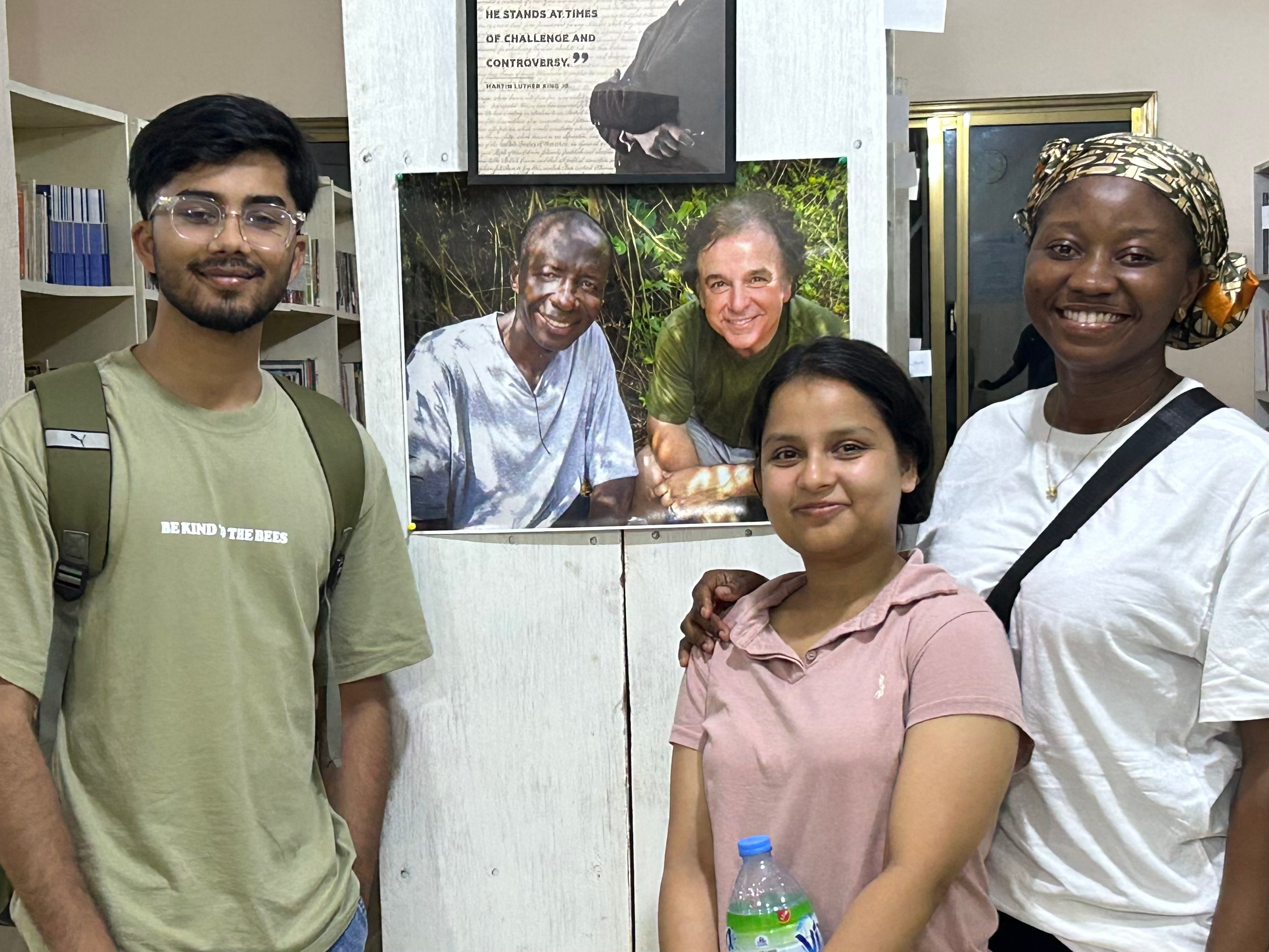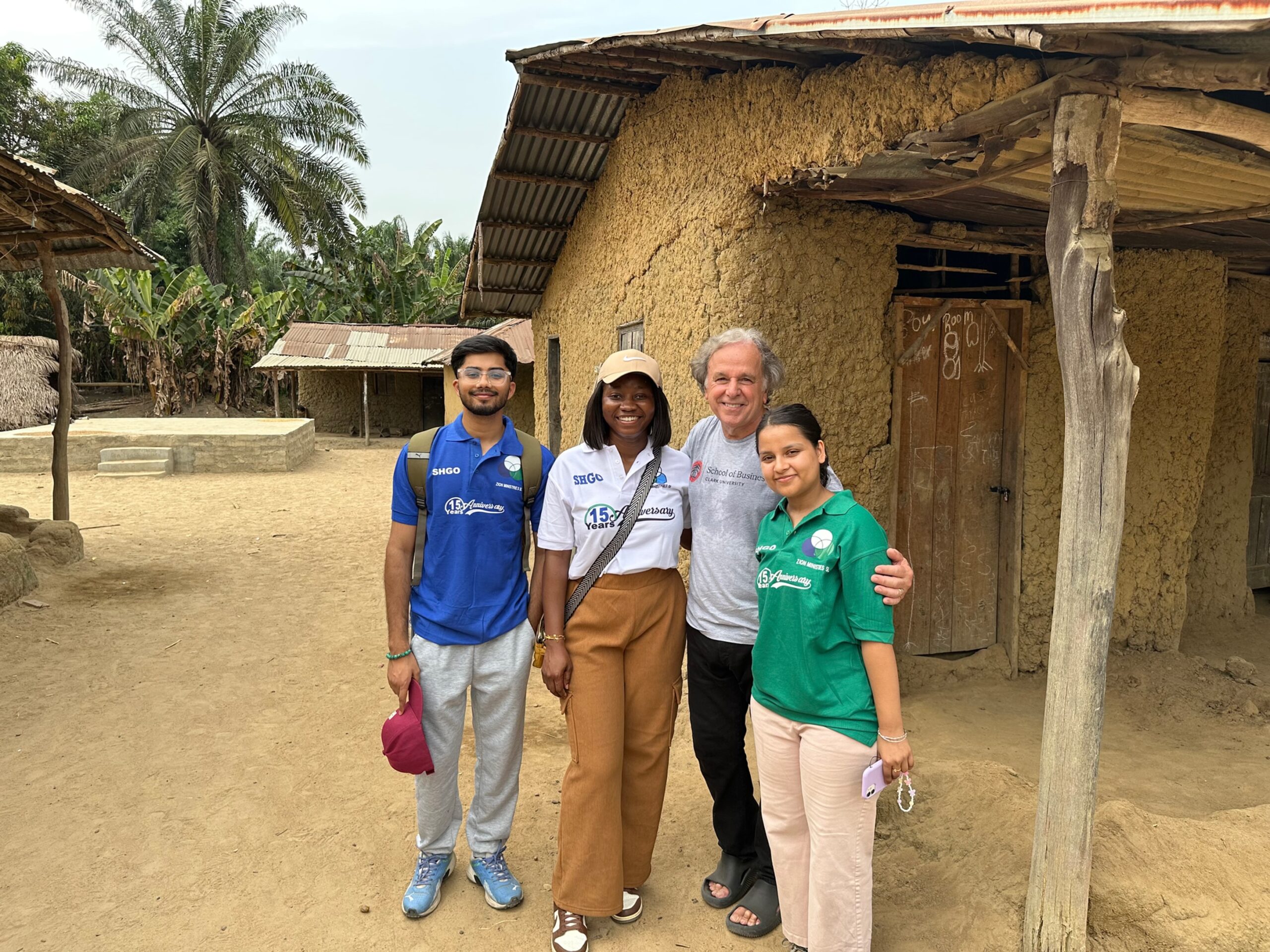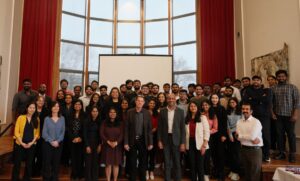Dean David Jordan reflects on 15 years of service trips with Clarkies
In 2009, a simple conversation outside of David Jordan’s office sparked an idea that would eventually send dozens of Clark students across the globe on life-changing journeys.
Jordan, then president of Seven Hills Foundation, couldn’t have expected that a casual exchange with an employee would ignite the launch of a program that would span continents and empower communities. He recalls the moment vividly.
“I was leaving my office at Seven Hills, and one of our employees happened to mention he was on his way to Western Union to send money to Sierra Leone,” recalls Jordan, who today is the dean of the School of Business at Clark. “When I asked him about it, he told me he was sponsoring two girls to attend school. What really shocked me was the cost — just 50 dollars for a whole year, including uniforms and books.” This conversation, Jordan explains, planted a seed. If such a small sum could create such an impact, what more could be done?
For Jordan, who, as a visiting professor, had been teaching Clark students about global issues for years, the employee’s story resonated deeply. His lessons on social entrepreneurship often emphasized the need to infuse savvy business acumen with a comparable amount of empathy. “My approach has always been to create a small business or enterprise that generates profit and use that for social good,” he explains. However, his students were ready for more than just theoretical discussions — they wanted to see the impact firsthand.
“After class, a group of students came up to me and said, ‘Hey, Dr. J, can you take us to some of these countries you talk about?’” Jordan remembers. And just like that, within a few short hours, the idea for a new project began to take shape.
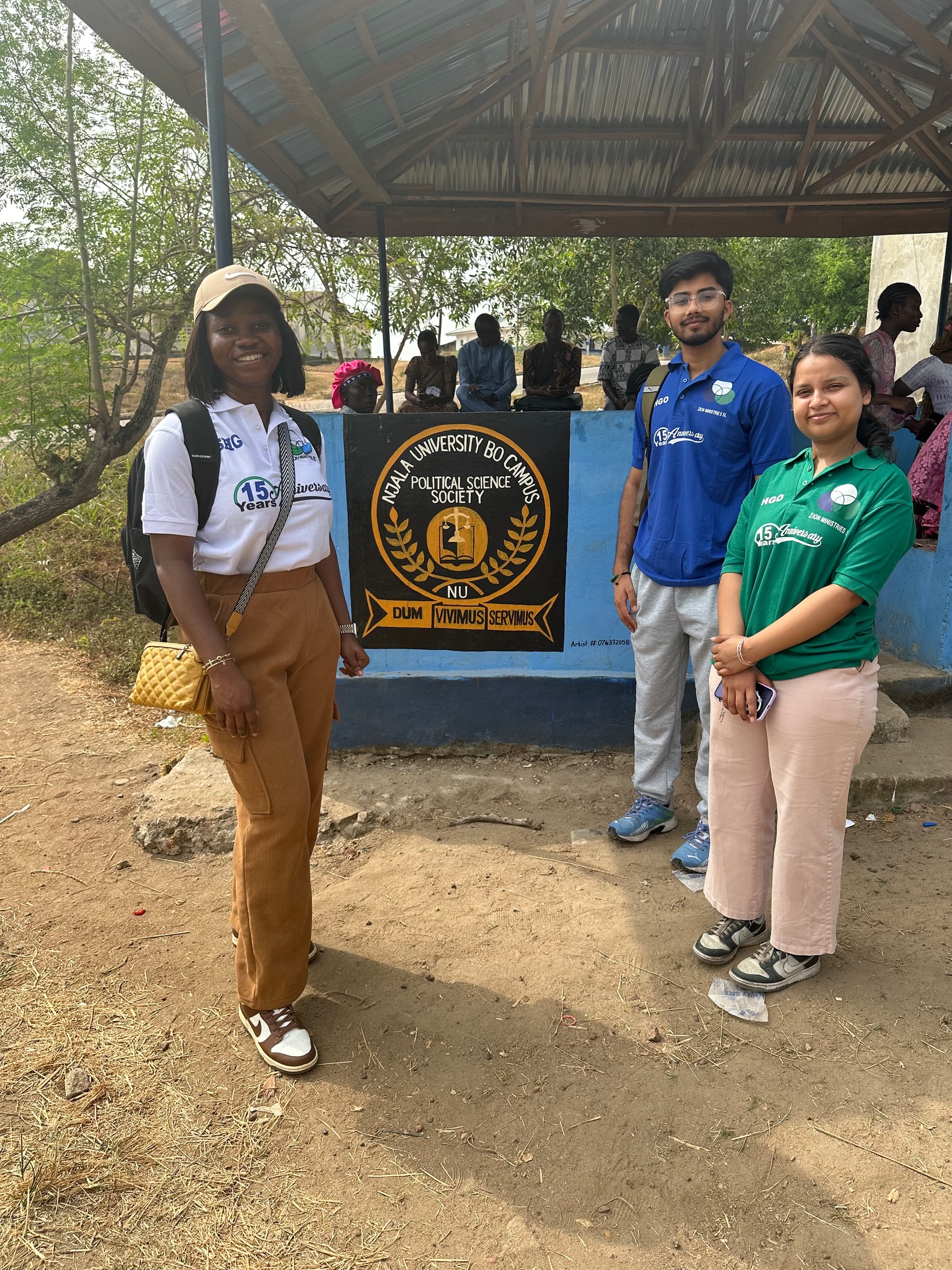
What followed was the founding of Seven Hills Global Outreach, a nonprofit extension of Jordan’s work at the Seven Hills Foundation. Within two months, Jordan and 10 students were on the ground in Ghana, partnering with community members to address issues ranging from supporting schools for children with special needs to helping farmers introduce sustainable agricultural practices.
The program expanded and has involved visits to countries including Sierra Lione, Liberia, Kenya, Bangladesh, Jamaica, and Brazil.
The most recent visit was just this month, January 2 to 12, when Jordan and graduate students Sarita Pandey, MSF ’26 (a native of Nepal), Barbara Abrahams, MBA ’26 (a native of Ghana), and Ashish Jaiswal, MBA ’26 (from Nepal), traveled to Sierra Leone and Ghana. Visit the Seven Hills Global Outreach blog for more on the winter break trip.
Ashish Jaiswal, an MBA student who participated in the January trip, said the experience profoundly shaped his understanding of social entrepreneurship.
“Throughout the trip, I gained hands-on insights into solving real-world problems, fostering new friendships, and building strong networks,” Jaiswal said. “From the joy of exploring new places, cultures, and connections to developing a deep emotional bond with the people and their challenges, the experience was both humbling and eye-opening … I left West Africa with a renewed sense of purpose and a determination to contribute to society using business as a force for good.”
Tracy Graham ’19, MBA ’20, a former Seven Hills Global Outreach Consultant, reflected on the collaborative effort behind these initiatives, specifically a past project involving work on a library in Bo, Sierra Lione, aptly titled the “Jordan Community Library.”
“The library project wasn’t just about sending books or setting up a space,” she said. “It was about ensuring the community could make it their own, so they could care for it, love it, and use it for future generations.” A vacant lot behind the library would also inspire the idea for a potential school building as well.
Graham worked closely with community members, including a local principal who provided insights into what teachers and students needed most. “The principal knew what the teachers needed for their classrooms,” she said. “That guidance shaped our decisions and helped us focus on what would actually make an impact.”
The project also brought challenges, including managing costs and logistics. “The shipping crates for the books were enormous — think the size of a warehouse,” Graham explained. “And we had to coordinate everything, from choosing a library management system to figuring out how to get all the resources there.”
For Graham, the most rewarding part of the experience was seeing how trust and collaboration created sustainable results. “What made these projects work wasn’t just our efforts; it was the partnerships we built and the way the community took the lead,” she said. “It was inspiring to see their vision take shape and know we played a small role in supporting it.”
In Haiti, a stalled medical clinic helped the students recognize the need for a continuous method of support for community necessities. A local doctor had begun building the clinic with admirable intentions but ran out of funding halfway through.
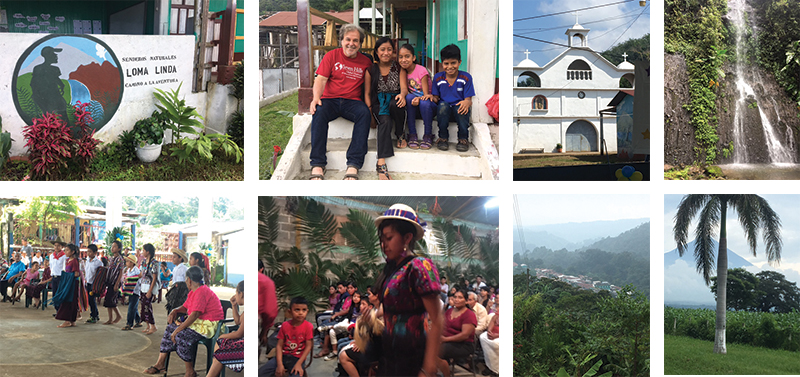
When Jordan and two of his students arrived, they didn’t focus on the unfinished clinic but instead collaborated with the community to address their challenges with a wider focus.
“We sat down with local women who told us the real problem wasn’t just healthcare — it was that the community lacked a source of ongoing support. They needed a business to generate the funds to sustain the clinic,” Jordan says. The students, eager to put their lessons about social entrepreneurship into practice, jumped at the chance to help find a solution that would provide tangible and sustainable benefits.
They developed the idea of creating a guesthouse for traveling American church groups to bring revenue into the community, provide employment opportunities, and fund the clinic. “We weren’t just starting a guesthouse,” Jordan explains. “We were creating jobs and making sure that this community had control over its own future.” The guesthouse, outfitted with modern facilities, was a success and provided the community with a funding stream that now keeps the clinic afloat.
Jordan notes that the students understood that the goal was never to make money for the sake of making money. “It was always about using business to create social good. They’ve taken that lesson and applied it to everything from women’s cooperatives to educational programs.”
Many of the students who participated in these trips went on to careers in nonprofit work. “I hear from them all the time,” Jordan says proudly. “They tell me that what they learned in class, and more importantly, what they did in the field, changed their lives. They’re running cooperatives, leading organizations, and continuing the work we started together.”
The blend of student initiative and sustainable impact is at the heart of Jordan’s vision for the School of Business at Clark. While profitability is part of the equation, it’s never the final goal, he insists. Adding that true success resides with creating projects that empower communities to thrive.
“We’re teaching our students that real social good doesn’t come from handouts,” Jordan says. “It comes from giving communities the tools to create their own success. That’s what our students are doing, and that’s what will keep these projects alive for years to come.”
